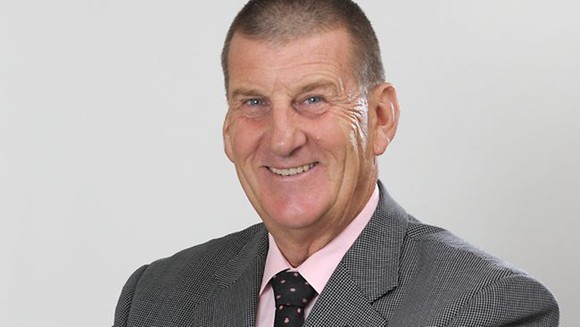WHY discriminate against people who are just being themselves? It was a few years ago that these words came together in my mind as a result of the work I have been doing with beyondblue.
Since the establishment of the organisation in 2000, I have travelled the length and breadth of the country. I have addressed hundreds of large and small gatherings talking about depression and issues relating to mental health.
In the course of those 14 years, I have met and talked to thousands of Australians about their struggle with anxiety, depression and serious forms of mental illness.
For so many sufferers, the barrier to a return to good health has often been the fear of being ridiculed, or discriminated against if they sought help.
I have met many people who have a physical or intellectual disability, or are indigenous or have a skin colour other than white. Why do some discriminate because of colour or place of birth? Why do we discriminate because of disability?
We may argue we do not, but the reality is we do. Governments do.
Their laws and practices discriminate in favour of the able, the strong, and the intellectually able. The National Disability Insurance Scheme seeks to redress the discrimination against disability. True, there is a great deal of work to be done to secure the positive outcome many think possible, but the fuse has been lit.
Think back on how far we have moved toward a more tolerant society in the past 20 or so years.
Twenty years ago, Nicky Winmar, the former St Kilda player, lifted his jumper to proudly display his colour in protest against racial discrimination within the community and sport.
Twenty years ago, mental health issues were fundamentally swept under the carpet.
Twenty years ago, to be gay or a lesbian was almost a death sentence.
Twenty years ago, for the majority, disability was almost the fault of the person with the disability.
Today, while there is still a great distance to go in delivering what many think possible in addressing a whole suite of discriminations, society is profoundly more tolerant.
Victoria has always been a leader in the area of tolerance, of multiculturalism, in trying to improve conditions for those suffering a mental illness. This leadership, in advocacy, in provision of services and the public rejection of intolerant views, has been bipartisan.
To the credit of both the major parties in Victoria, Liberal and Labor, when in government or opposition, their consistent advocacy and actions in support of tolerance has contributed to our reputation for compassion.
The Prime Minister, Julia Gillard, has introduced legislation into the Australian Parliament that will give rise to collecting part of the funds necessary to fund DisabilityCare. As she introduced the legislation, she was close to tears.
Some have sought to question the emotions she displayed at the time. Why? It was for her – and for the community the scheme aims to assist – a moment like no other.
I did not doubt for one moment the sincerity with which the Prime Minister introduced the legislation to raise the Medicare levy to help fund DisabilityCare. But there remains much to be done to deliver the dream.
This week, Kevin Rudd indicated he had changed his views on gay marriage. The current laws of the land declare gay unions to be illegal by recognising marriage only as the union of a male and female.
But does not the current law positively discriminate against otherwise law-abiding citizens who simply want to live together in the same way as heterosexuals do?
I used to support the current law, but changed my mind when I asked myself why should I deny anyone else the same opportunity to live as happy a life as I have been fortunate to live.
Why discriminate against those who are just being themselves?
I now know that there is a very high suicide rate among the GLBTI (gay, lesbian, bisexual, transgender, intersex) community. It is not because those individuals are gay, it is because of the difficulty they have in leading a “normal life” without discrimination.
It is the way many in the community discriminate against gay people that kills them, not sexuality itself.
So many in the media have described Rudd’s new position as a “backflip”.
Surely, that is grossly unfair. Surely, one can change one’s views on a subject within one’s lifetime based on new information or better education.
In private life, if we change a view on an issue, that is invariably described as a changed position.
If you are a politician, it is described so as to imply some sort of embarrassment – a backflip.
A position on a social issue is a view, not a commitment as was the promise: “There will be no carbon tax in any government I lead.”
So I welcome Rudd’s changed position. It recognises the need to remove discrimination against those who simply want to live a happy, law-abiding life.
I recognise that there are many in the country who support the current law. They should not be demonised. That is their right.
It remains to those of us who support changing the law to continue the advocacy, to convince the majority of the correctness of changing the definition of marriage.
If we can’t do that in an orderly way, our campaign fails for now.
Discrimination is so hurtful, in all its forms. I ask you again, why should any of us discriminate against people who are just being themselves?
Jeff Kennett is a former Victorian premier
Author: Jeff Kennett
Publication: Herald Sun
Publication Date: May 22 2013

